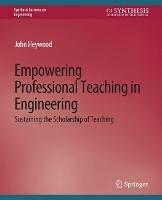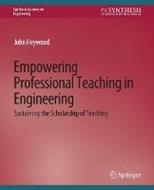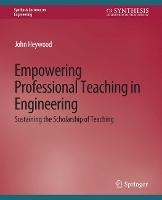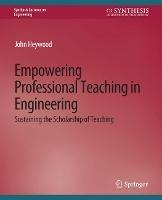Empowering Professional Teaching in Engineering: Sustaining the Scholarship of Teaching
Each one of us has views about education, how discipline should function, how individuals learn, how they should be motivated, what intelligence is, and the structures (content and subjects) of the curriculum. Perhaps the most important beliefs that (beginning) teachers bring with them are their notions about what constitutes "good teaching". The scholarship of teaching requires that (beginning) teachers should examine (evaluate) these views in the light of knowledge currently available about the curriculum and instruction, and decide their future actions on the basis of that analysis. Such evaluations are best undertaken when classrooms are treated as laboratories of inquiry (research) where teachers establish what works best for them. Two instructor centred and two learner centred philosophies of knowledge, curriculum and instruction are used to discern the fundamental (basic) questions that engineering educators should answer in respect of their own beliefs and practice. They point to a series of classroom activities that will enable them to challenge their own beliefs, and at the same time affirm, develop, or change their philosophies of knowledge, curriculum and instruction.
-
Autore:
-
Editore:
-
Collana:Synthesis Lectures on Engineering
-
Anno:2018
-
Rilegatura:Paperback / softback
Le schede prodotto sono aggiornate in conformità al Regolamento UE 988/2023. Laddove ci fossero taluni dati non disponibili per ragioni indipendenti da Feltrinelli, vi informiamo che stiamo compiendo ogni ragionevole sforzo per inserirli. Vi invitiamo a controllare periodicamente il sito www.lafeltrinelli.it per eventuali novità e aggiornamenti.
Per le vendite di prodotti da terze parti, ciascun venditore si assume la piena e diretta responsabilità per la commercializzazione del prodotto e per la sua conformità al Regolamento UE 988/2023, nonché alle normative nazionali ed europee vigenti.
Per informazioni sulla sicurezza dei prodotti, contattare productsafety@feltrinelli.it




